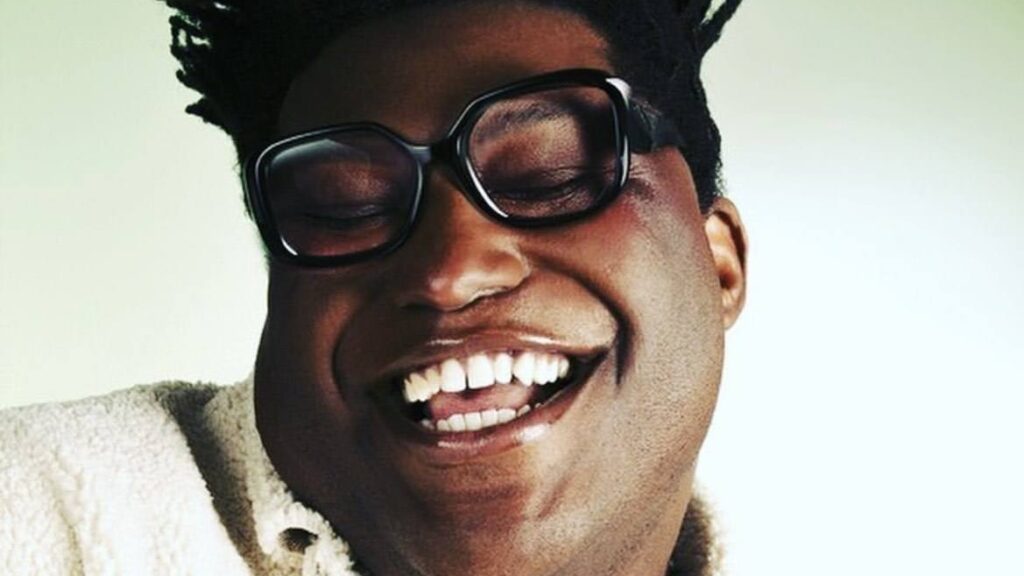In an exclusive interview with What’s Trending, actor and director Larry Owens shared his insights on balancing dual roles, the creative process behind his directorial debut “The Gag,” and the importance of representation in the film industry. Owens’ experience, particularly on the acclaimed series “Abbott Elementary,” has shaped his artistic vision and commitment to storytelling that resonates with the human experience.
Owens believes that his experiences in both acting and directing complement each other. “All of my work is an attempt to make something recognizable from the human condition,” he said. This shared focus allows him to empathize deeply with the actors he works with. “I know how disorienting, nerve-wracking, and confidence-imploding creating a role can be,” he explained, highlighting his sensitivity to the challenges faced by performers. This understanding drives him to create supportive environments where actors can thrive.
His time on “Abbott Elementary,” the critically acclaimed series created by Quinta Brunson, has profoundly shaped his approach to directing. Owens described Brunson as an exemplary leader, stating, “Watching her navigate so much on set has been one of the best educations in real-time.” He admires her ability to blend intellect and humor while serving as a role model for young Black actors. “When you see someone aiming that high and making the basket each time, you know it’s possible,” he remarked, illustrating the inspiration he draws from her leadership.
Owens’ directorial debut, “The Gag,” is a concept musical that defies conventional storytelling. He aimed to create a cinematic portrayal of daytime television, transforming it into a behind-the-scenes drama. “It’s about a community of writers pushing back against an amoral anti-hero,” he explained. The film’s execution relied heavily on collaboration, involving extensive conversations with director of photography Matheus Bastos and set designer. Additionally, Owens faced the challenge of building a sonic world with minimal budget. “I say non-existent because this was the first musical!” he joked, emphasizing the resourcefulness required to bring his vision to life.
Owens described a significant shift in his creative process when transitioning from acting to directing. “Directing gives me more presence on set,” he said, noting that as a guest actor, he often felt like an outsider. In contrast, directing allows him to set the tone and energy of the production. “Some of my best feedback is when the folks I’ve hired remark that the experience of creating this piece has felt special in some way,” he shared. This enhanced presence enables him to express his artistic passion more freely.
Directing “The Gag” presented unique challenges, particularly as it marked the first musical produced by the Rising Voices program. “It was an honor to be trusted with this added layer of storytelling,” he reflected. The project required extensive musical theater expertise, which Owens drew upon, alongside the generosity of his collaborators, including music supervisor Josh Kight and engineer John Kilgore. “We had to make the musical magic happen in record time for a two-day shoot!” he said, underscoring the collaborative effort involved in the production.
The narrative of “The Gag” is rooted in Owens’ exploration of the future of work, a theme aligned with Rising Voices’ mission. “The full-length musical I wrote called ‘The Talk Show’ investigates the impact of a moral center in professional settings,” he explained. His protagonist, Deanie Myers, portrayed by multiple Tony nominee Sherie Rene Scott, embodies these themes. Owens hopes audiences will appreciate this deeper form of musical storytelling. “I would love to be the Almodovar of the musical film,” he expressed, aspiring to elevate the genre beyond traditional expectations.
ADVERTISEMENT
Watching audiences engage with “The Gag” has been a thrilling experience for Owens. “It is so unique in its style, ambition, and execution that it requires the audience to lean in,” he noted. He likened his visual approach to art, saying, “I’ve tilted the frame around the painting just enough that each reference is somehow deeper and more symbolic.” This cinematic depth, coupled with a pop score, creates a compelling tension, making it what he calls a “musical thriller.”
Owens is excited about upcoming projects that build on the foundation laid by “The Gag.” He views the film as a proof of concept for a full-length feature musical titled “The Talk Show,” which will continue the story of Deanie Myers. Additionally, he received the Jonathan Larson Grant from The American Theatre Wing for his musical theater writing. “I’m producing my first full-length stage property, ‘The American Football Musical,’ as well,” he revealed, showcasing his dedication to expanding his artistic repertoire.
Owens spoke highly of his experience with the Rising Voices program, which he described as transformative. “It brought me face to face with so many lifelong collaborators,” he shared. He echoed sentiments from Lena Waithe about the importance of emerging artists having a “signature piece.” The resources provided by Rising Voices enable filmmakers to create works that genuinely reflect their artistic vision.
For Owens, platforms like Rising Voices are crucial for BIPOC filmmakers. “No one else is giving us a chance,” he asserted, criticizing the current state of Hollywood, which he feels is increasingly dominated by conglomerates and tech startups. He views Rising Voices as a direct antidote to this trend, allowing artists to create without the bureaucratic constraints often seen in traditional studios. “This program aligns worthy artists with the tools for success now,” he said emphatically.
To aspiring BIPOC filmmakers considering applying for Season 5 of Rising Voices, Owens offers encouragement. “Submit bold, ambitious scripts that push the envelope,” he advised, emphasizing the cultural richness that people of color bring to storytelling. “We are the trend makers. We literally bring the world flavor and spice!” he added, urging filmmakers to combine creativity with diligent production efforts.
Looking ahead, Owens sees the future of BIPOC filmmaking as contingent on those who control production resources. “The American arts economy was created via large government subsidy and the kindness of artful-minded benefactors,” he noted. He believes that the work being produced today is both vital and necessary, positioning Rising Voices as a trailblazer in the movement for representation in film and theater.
ADVERTISEMENT
As Larry Owens continues to break barriers in his dual roles, he embodies the spirit of innovation and collaboration. His journey highlights the importance of diverse voices in shaping the future of storytelling, reminding us all that art is a reflection of the human experience.









